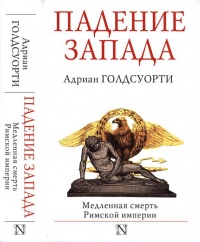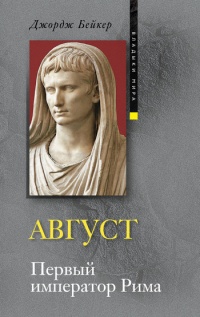Книга Октавиан Август. Революционер, ставший императором - Адриан Голдсуорси
Читать книгу Октавиан Август. Революционер, ставший императором - Адриан Голдсуорси полностью.
Шрифт:
-
+
Интервал:
-
+
Закладка:
Сделать
Перейти на страницу:
Перейти на страницу:
Книги схожие с книгой «Октавиан Август. Революционер, ставший императором - Адриан Голдсуорси» от автора - Адриан Голдсуорси:
Комментарии и отзывы (0) к книге "Октавиан Август. Революционер, ставший императором - Адриан Голдсуорси"








